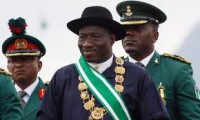
Some misperceptions about the Israeli elections
Much has been written about how the media misreported the Israeli elections and I want to briefly dispel two particular misconceptions.
1) The majority of Israelis did not vote against Benjamin Netanyahu. Polls indicate quite clearly that a majority of Israelis wanted to see Netanyahu as Prime Minister. Many voters, though, were opposed to the newly created alliance between his Likud Party and former foreign minister Avigdor Lieberman’s Israel Beyiteinu Party.

Deepening Democracy Means Looking Beyond Elections
We must remember that democracies are not self-executing systems; they stand on complex political institutions that reflect the political power of the citizenry. For many countries, then, the challenge is keeping the population constructively engaged in the democratic process following successful free and fair elections.

Targeting and Turnout in the 2012 US Presidential Election
One of the big questions in the run-up to the 2012 Presidential Election was what the turnout would be. Would the supposed “enthusiasm gap” lead to lower turnout amongst some of the key demographics behind Obama’s 2008 victory, like African-Americans and college students? Would the absence of the extraordinary volunteer mobilization seen around the Presidents’ first campaign leave his re-election effort without the capacity to expand the electorate through large-scale voter registration efforts and an extensive and intense effort to get out the vote?

Deepening Democracy: In Nigeria, improving government accountability means paying politicians less
While the Global Commission report on Deepening Democracy provides insightful recommendations on strategies for improving electoral integrity, we must remember that elections are just one step in the democratic process. Certain precursors need to be made right in order to make the report’s recommended strategies achievable. Having lived in Nigeria and experienced the democratic process there, I am of the opinion that one vital measure needed to strengthen its nascent democracy is to drastically reduce the excessive financial incentives that accompany political positions. The quest for political leadership must be guided by a passion to lead and make changes. Sadly, these are noble incentives overshadowed by the “what is in for me?” mentality of personal gratification that has eaten deep into the fabric of the country’s political space.

The Money Trail: TV adverts are the most costly, but campaigns still spend big on old fashioned buttons and yard signs
From the coverage of the US election in the UK news media it would be easy to get the impression that we are witnessing a single battle of giants, or a least of the giantly funded. In mid-October the Center for Responsive Politics reported that the campaigns of Mitt Romney and Barack Obama had raised almost $900 million combined. But the presidential election is not the only place where money talks loudly.

Georgia’s Election: Georgian Dream won a shock victory, but we should have seen this coming
On the first of October, 2012, Georgia held parliamentary elections. In Western capitals and analytical circles, it was widely believed that Mikheil Saakashvili’s ruling United National Movement (UNM) would be returned to power. Most polling on political rankings supported this expectation. Some analysts had suggested that the highly unequal impact of Georgia’s impressive growth record was generating significant social discontent, undermining the ruling party’s position. Deepening inequality, sporadically high inflation, persistently high unemployment, and deepening poverty might translate into opposition votes. These people were dismissed as misinformed or deluded cranks, me included.









